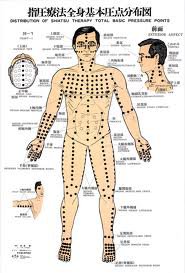Written by Mary Melling
 One of the most common reasons people come to consult with us at Paddington Clinic is because they feel tired……”EXHAUSTED” is a phrase used by many. Some of these clients say they have seen their own GP and all blood tests have come back saying all is normal but they know they just don’t feel right and could feel so much better in themselves. This is where natural medicine can really help!!
One of the most common reasons people come to consult with us at Paddington Clinic is because they feel tired……”EXHAUSTED” is a phrase used by many. Some of these clients say they have seen their own GP and all blood tests have come back saying all is normal but they know they just don’t feel right and could feel so much better in themselves. This is where natural medicine can really help!!
Acupuncture is a fantastic system that has been used for thousands of years to help a variety of ailments. In our modern world with increasing stress, less sleep, poor nutrition and a poor ability to relax, fatigue is becoming epidemic. Of course it is necessary to check all reasons for fatigue whether it is to do with diet or toxins or poor life style choices. Acupuncture however is looking at the individual from an energy perspective and there can be many answers to why someone if feeling so tired. When your acupuncturist examines your body including feeling your abdomen and pulses at the wrist, a lot of information is gathered regarding what is out of balance in the body. Twelve pulses can be felt at the wrist and these give information regarding the twelve emery channels (or meridians) that run through the body.
Through this technique we can assess where your deficiencies are and through acupuncture the body is helped to be brought back into balance. There are four main deficiencies that are most likely to be involved in fatigue. When an organ name is given to a deficiency it doesn’t mean that organ is failing or in dangerous need of help. It is referring to the energy of that channel that passes through the body and also through the organ.
The first is a Kidney deficiency. The symptoms someone could experience when they are kidney deficient is lower back ache that is worse towards the end of the day and better after resting or lying down. They may also have frequency of urination, cold feet, feeling of anxiety as well as fatigue.
The second is Liver deficiency or stagnation. With these people often they are tired because their energy (or Qi) is stuck in the abdominal region and is not flowing well. By helping to move this energy the overall feeling of fatigue will improve. These people often also experience tightness and tension in their muscles and can feel frustrated and angry. A question I often ask people who I diagnose with liver stagnation is “Is everyone being very irritating at the moment?” It’s amazing how often the reply is “yes how did you know?”
The third is Spleen deficiency. When someone is spleen deficient they usually experience some digestive upset or are craving sugars or carbohydrates. This is because they are not processing foods well and have poor absorption and so their body thinks an instant hit of sugar will give them more energy. They will often feel a sense of fuzziness in the head with a lack of clarity and this contributes to that tired feeling. Another sign of being spleen deficient is that the person may feel very heavy in the legs and find it hard to get motivated at times.
The forth is Lung deficiency. When someone is lung deficient they may have symptoms related to a cold, chest or sinus infection. However it may be purely that they are tired on exertion and they are not processing sufficient oxygen to sustain their energy. The lung channel on an emotional level can be associated with sadness and grieving so this emotion can also lower an individual’s energy level and strengthening their lung energy will assist in their emotional well being.
The idea of acupuncture is to balance the energy channels in the body and each treatment is designed to continue improving the overall health of the individual. It is often necessary to combine acupuncture with other naturopathic checks and treatments so that the client can not only feel more energised but eventually feel the best they have for a long time and be full of energy and enthusiasm for life.
Written by Mary Melling

